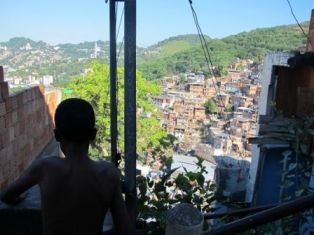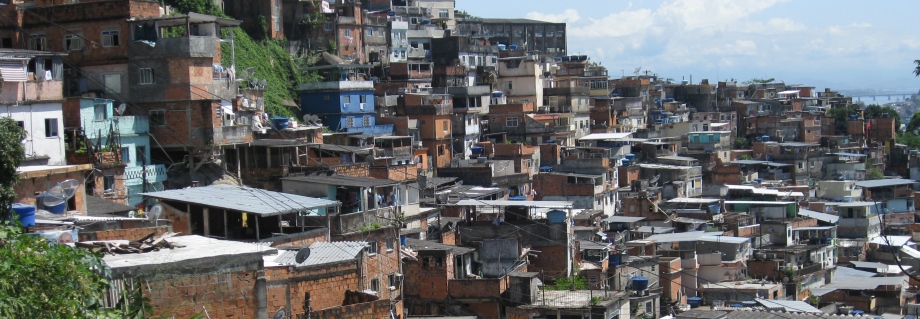In 2012 and 2013 Project WET focused on improving health in some of Rio de Janeiro’s poorest neighborhoods through a customized water education program, Educação e Água (Education and Water). The program specifically focused on creating behavior changes surrounding disease prevention, trash management and maintaining healthy water sources in Rio’s slums, known as favelas. With the help of local partners the program was piloted in the Grande Tijuca area in the neighborhoods of Andarai, Borel, Formiga, Macacos, Salgueiro and Turano.
 Program area
Program areaThe Tijuca area is in the Northern Zone of the city of Rio de Janeiro and is surrounded by the Tijuca National Forest, the third largest urban forest in the world. The many springs and rivers in Tijuca and the surrounding National Forest are part of a significant watershed that drains into the Guanabara Bay of Rio de Janeiro. This area also has several favelas nestled in the mountains of the national park. These communities have traditionally been ignored by development projects and rely on the water of the Tijuca forest as an important water source.

The Educação e Água project has a strong emphasis on data collection from both schools and health centers. This data will ultimately help determine what effect hygiene and health education has on schools, children and communities. Project WET’s approach to monitoring the health outcomes of the project is three-fold. Working with local partners, Project WET spent 2012 collecting data from health centers, schools, teachers and community organizations. The results of this effort were three different data sets to help Project WET evaluate the health situation and determine the most appropriate topics and activities for customized educational materials. The data include:
Observations and photographs of the water and sanitation situation in the Tijuca communities will help document the sanitation conditions in the project communities before and after Project WET materials are implemented.
As part of the Educação e Água project, Project WET worked closely with local partners to determine priority topics and types of educational materials for use the Grande Tijuca communities. Project WET used their proven and innovative approach to creating customized educational materials through workshops and meetings with educators, government officials and community leaders. Coupled with data collected from local health posts on the most prevalent diseases relating to water, this local approach shaped the activities and topics covered in the customized materials titled “Só Rio com Água limpa” in Portuguese and “Health Water, Healthy Rio” in English.
Project WET will train local educators to use the hands-on methodology and activities in a newly customized educators guide. These educators will then become Project WET Trainers and will train other educators in their communities with the goal to train at least 500 educators in Rio de Janeiro. In total, these educators will reach approximately 10,000 children.

The Educação e Água project was a collaborative effort with local partners, Earth Child Institute and Dutch health professionals Michelle Nysten and Suzan Christiaans. Their help with local contacts, data collection, field tests and trainings helped the project to be a success. Funding was made possible through the Abbott Fund.